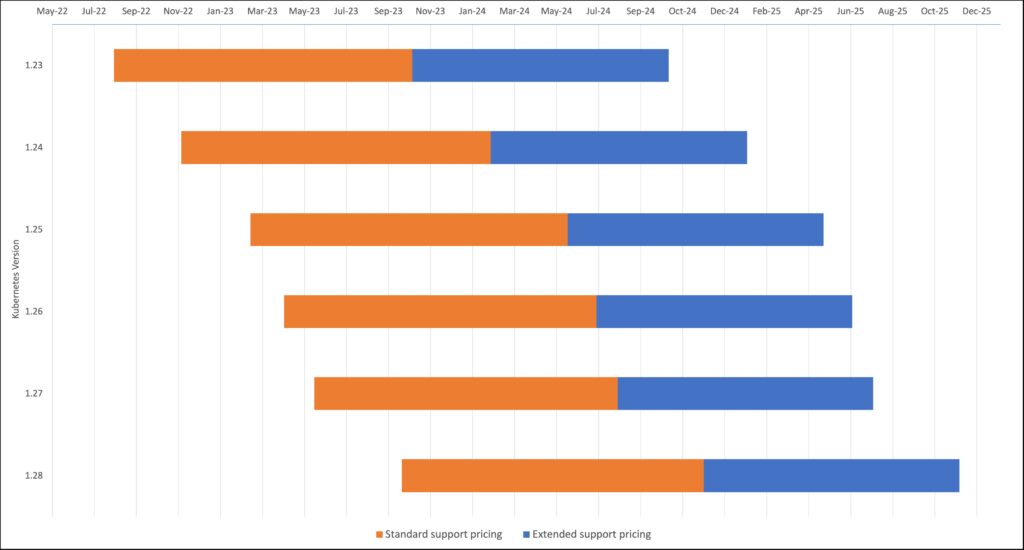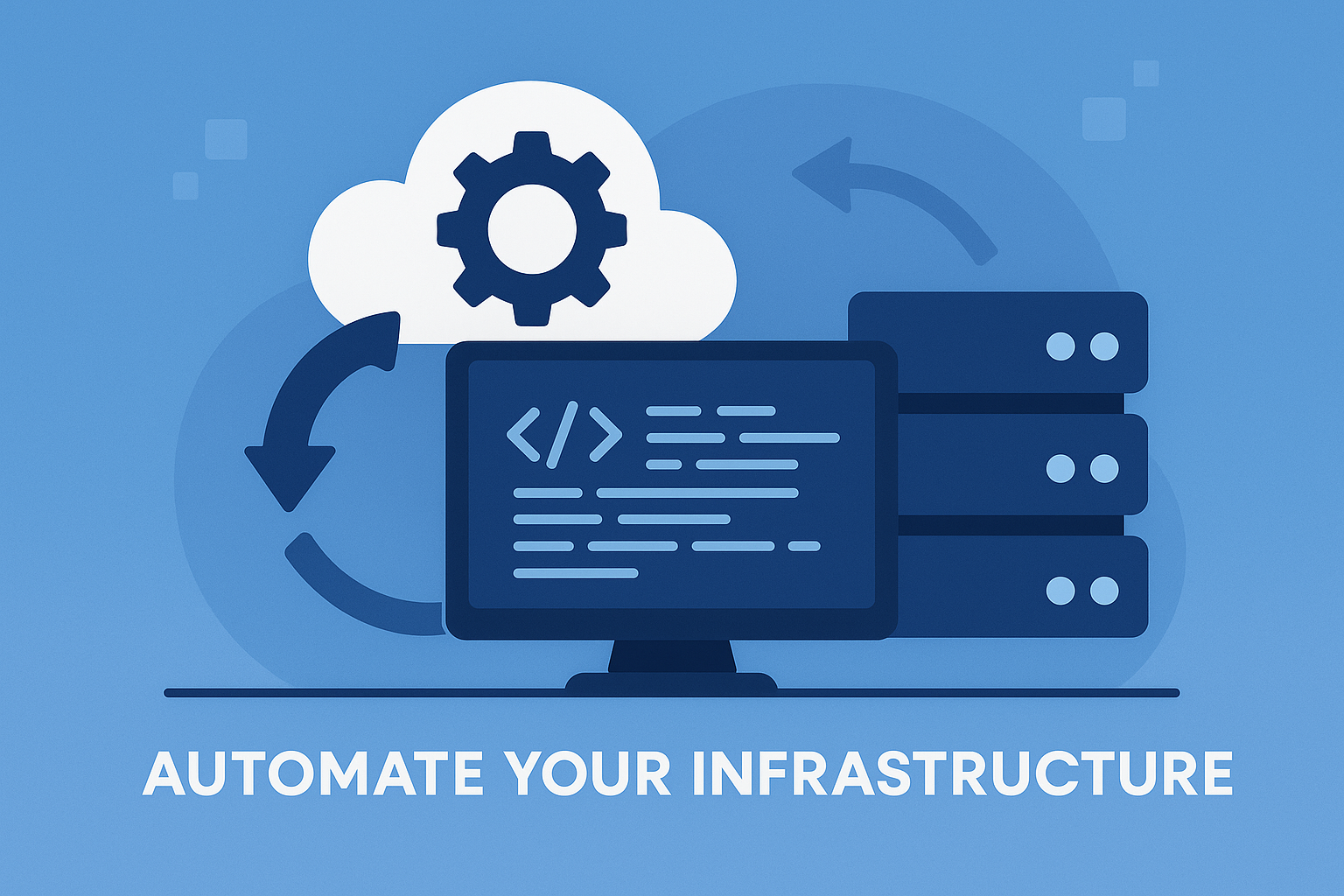Amazon Elastic Kubernetes Service (Amazon EKS) has recently announced extended support for Kubernetes versions, providing an additional 12 months of support for Kubernetes minor versions. However, starting from April 2024, there will be a cost of $0.60 per EKS cluster per hour for extended support. This cost covers the Kubernetes control plane, while AWS resources used for worker nodes or cluster functions will be billed separately. It is important to note that extended support is available for Kubernetes versions 1.23 and higher. To avoid facing a hefty bill, it is crucial to start planning and testing the upgrades now. If your team lacks the necessary bandwidth or infrastructure expertise, reach out to SlickFinch today. As Kubernetes experts, we can handle the task of preparing and executing the required work for you, ensuring a seamless transition.

Upgrade Your EKS Clusters Before April 1st Or Pay The Price
Background
Amazon Elastic Kubernetes Service (Amazon EKS) has recently announced extended support for Kubernetes versions, providing an additional 12 months of support for Kubernetes minor versions. This extended support is available for Kubernetes versions 1.23 and higher. However, it is important to note that starting from April 1st, 2024, there will be pricing implications for running older versions of Kubernetes on EKS.

Extended Support for Kubernetes versions
The extended support offered by Amazon EKS ensures that Kubernetes minor versions receive an additional 12 months of support beyond the standard support duration. This allows users to have more time to upgrade their Kubernetes versions while still receiving necessary support.
Pricing for Extended Support
Starting from April 1st, 2024, there will be a cost associated with running EKS clusters on Kubernetes versions in extended support. The pricing for extended support will be set at $0.60 per cluster per hour. It is important to note that this pricing covers the Kubernetes control plane, while AWS resources used for worker nodes or cluster functions are billed separately.
Availability of Extended Support
Extended support is available for Kubernetes versions 1.23 and higher. This means that EKS clusters running on older Kubernetes versions will no longer be eligible for extended support. It is crucial for users to upgrade their clusters to newer Kubernetes versions to continue receiving support and avoid increased costs.
Standard Support and Extended Support Durations
Standard support offered by Amazon EKS lasts for 14 months for each Kubernetes minor version. However, the extended support duration provides an additional 12 months of support, allowing users more time to plan and execute their upgrades. It is essential to keep track of the support dates and pricing for different Kubernetes versions, which can be found in the Amazon EKS version calendar.
Billing Based on Kubernetes Version
The billing for EKS clusters is dependent on the version of Kubernetes running on the cluster. Running clusters on versions in standard support will not incur any additional costs beyond the standard EKS pricing. However, starting from April 1st, 2024, clusters running on versions in extended support will be charged at the increased rate of $0.60 per cluster per hour.
Consequences of Running Old Versions on EKS
Impact of Not Upgrading
Not upgrading your EKS clusters to newer Kubernetes versions can have various negative impacts on your infrastructure apart from this new increased cost. Running on older Kubernetes versions means missing out on the latest features, bug fixes, and security patches provided by newer versions. This can leave your infrastructure vulnerable to potential security threats and may hinder your ability to take advantage of the latest advancements in Kubernetes technology.
Planning and Testing Upgrades
Importance of Planning and Testing
To ensure a smooth and successful upgrade process, planning and testing are of utmost importance. Upgrading EKS clusters involves various considerations, including compatibility with newer versions and potential impact on applications and workloads. It is vital to invest time and effort in planning and testing to minimize disruption and ensure a seamless transition.
Identifying the Current Kubernetes Version
Before proceeding with the upgrade process, it is important to identify the current Kubernetes version running on your EKS clusters. This information will serve as a starting point for determining the necessary steps and compatibility considerations for upgrading to newer versions. Amazon EKS provides tools and documentation to help you easily identify the version of Kubernetes running on your clusters.
Checking Compatibility with Newer Versions
Once you have identified the current Kubernetes version, it is essential to check its compatibility with newer versions. Not all applications and workloads may be compatible with the latest Kubernetes versions, and certain modifications or adjustments may be required. Consider reaching out to application owners and stakeholders to ensure seamless compatibility during the upgrade process.
Creating an Upgrade Timeline
Creating a detailed upgrade timeline is crucial for a well-executed upgrade process. This timeline should include steps such as backing up critical data, verifying compatibility with dependencies, and scheduling maintenance windows for minimal disruption. By mapping out the process in advance, you can streamline the upgrade and minimize downtime for your applications and services.
Testing the Upgrade Process
Before performing the actual upgrade on production clusters, it is highly recommended to thoroughly test the upgrade process in a non-production environment. Testing can help identify any potential issues or conflicts that may arise during the upgrade and allow you to address them proactively. By running comprehensive tests, you can validate the compatibility of your applications and ensure a smooth transition to the new Kubernetes version.
Seeking Assistance from SlickFinch
Lack of Bandwidth or Infrastructure Team
Upgrading EKS clusters and managing the associated tasks may require significant bandwidth and expertise. If your organization lacks the necessary resources or infrastructure team to handle the upgrade process, it is advisable to seek assistance from external experts.
Benefits of Outsourcing to SlickFinch
SlickFinch specializes in Kubernetes expertise and can provide valuable assistance in planning, executing, and managing the upgrade process for your EKS clusters. By outsourcing these tasks to SlickFinch, you can save time, ensure a smooth transition, and alleviate the burden on your internal resources.
Contact Information
If you need help with your EKS cluster upgrades, you can contact us to discuss your needs in more detail.
Conclusion
Upgrading your EKS clusters to newer Kubernetes versions before April 1st, 2024, is crucial to avoid increased costs associated with extended support. Failing to upgrade can lead to unexpected financial implications and leave your infrastructure vulnerable to security threats. By planning and testing the upgrade process now, you can ensure a smooth transition and take advantage of the latest features and security patches. If your organization lacks the necessary bandwidth or infrastructure team, consider reaching out to SlickFinch for expert assistance in managing the upgrade process. Act now to protect your organization from unnecessary costs and stay up to date with the latest Kubernetes advancements.




